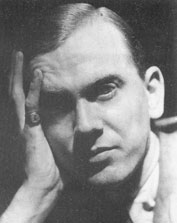
V.S. Naipul
Gunter Grass
Seamus Heaney
Toni Morrison
Derek Walcott
Nadine Gordimer
Joseph Brodsky
William Golding
Isaac Singer
Saul Bellow
Heinrich Boll
Jean-Paul Sartre
John Steinbeck
Aleksandr Isaevich Solzhenitsyn
William Faulkner
T.S. Eliot
Andre Gide
Earnest Hemingway
Herman Hesse
Eugene O'Neill
John Galsworthy
George Bernard Shaw
I used to think the Nobel Prize was the greatest honor this corrupt little world had to bestow upon a person. That was a while ago. Some time before Henry Kissinger won the Nobel Peace Prize for threatening to bomb North Viet Nam into the stone ages if they wouldn't hold their fire long enough for America to get the hell out and pretend they settled for peace with "honor".
So I'm being fey. I don't have illusions about the Nobel Prize for literature.
And you shouldn't either. You should know that the writers listed on the left have received the Nobel Prize for Literature. Not a bad bunch, I suppose. Some of them, like Sartre and Solzhenitsyn seem rather dubious in the light of historical developments. was Sartre really all that important? And Solzhenitsyn turned out to be Hester Prynne's bad uncle and nobody wants to invite him to parties anymore. William Golding? For what? Saul Bellow?
Sure I'm being irreverent. In my opinion, Solzhenitsyn was a good writer who stood up to the authorities and thus became regarded as a great writer. Now that the Berlin Wall is down, we can go back to thinking of him as a good writer. A fine writer. A decent writer. He was also a Russian Nationalist and an anti-Semite.
But then, is the Nobel deserving of grandeur?
John Galsworthy? For "The Forsythe Saga"? You've got to be kidding. Isn't "The Forsythe Saga" the ultimate source of all soap opera?
Eugene O'Neill? Even Solzhenitsyn is never as boring as "Long Day's Journey Into Night" (although "The Iceman Cometh" was entertaining, at least, when Lee Marvin played Hickey.).
Steinbeck is the American writer that most resembles Solzhenitsyn, though even he is more interesting. He was important, at least, as the dramatist of the depression. Hemingway is deserving, for his innovations in style as well as for the acutely modern sensibility he brought to his work, so clearly missing from Galsworthy and Steinbeck. T.S. Eliot? I never liked him much, but even I have to admit that the line "I have measured out my life in coffee spoons" deserves some kind of special recognition, if not Eliot's fondness for fascism and idiotic obscurantism and anti-Semitism.
Toni Morrison is the weakest entry on the list. In ten years, everyone will finally get over the novelty of race and come to know just how uninteresting her work really is. I rarely give up on a book once I've started reading it, but I had to slog through "Tar Baby", and I can't remember anything about "Song of Solomon". Is she really better than Richard Wright or James Baldwin, neither of whom made the list?
Isaac Singer is a brilliant choice-- one of the most distinctive voices of the 20th century. V.S. Naipaul? I honestly don't know. I've always liked his writing, especially his travel pieces, and he is unfailingly thoughtful and perceptive, and provocative.
William Golding? "Lord of the Flies" is undoubtedly a brilliant book, but I've never liked it. I always wondered where the girls were. I was never able to make sense of his other books. I always felt that if he hadn't been famous for "Lord of the Flies", nobody would have cared about "Pincher Martin".
You may have noticed an astonishing omission from the list. An omission so monumental that it is stunning in it's audaciousness: Graham Greene.
I have read somewhere that Graham Greene would have won the Nobel Prize but for the objections of the Americans, who hated him for criticizing their actions in Central America, and elsewhere. I'm puzzled by the story. I don't know where it comes from, or if it is true. I am flabbergasted by the idea that the Americans can block the selection of the Nobel Selection Committee. How do they do it? Who do they phone?
I have also heard that Arthur Lundquist, a member of the Academy, had it in for Greene. "Over my dead body" was the phrase someone used, to describe Lundquist's feelings about Greene getting a Nobel prize.
But one thing is obvious: on merit alone, Greene should have been selected miles ahead of Morrison, Gordimer, Golding, O'Neill, Faulkner, Galsworthy, or half a dozen others.
It is probably appropriate that Greene never won. One of the most remarkable traits of his work is its utter lack of sentimentality, and prizes--even big ones-- especially big ones-- are all about sentimentality. There is a way of being correctly incorrect, and there is Greene's way, which is to dissect why we need to believe that we are somehow appreciative of "incorrect" writers, like Naipaul and Solzhenitsyn. There is a subplot in "The Power and the Glory" about a book a pious mother reads to her children, about a great Catholic martyr, and his heroic life and death. It's all phony, of course, and Greene contrasts this phony iconography with the "real" adventures of the whiskey priest, who believes himself worthy of damnation. He also contrasts the whiskey priest to Padre Jose, who marries and sells out the faith in order to save his own life, and present the people with a living, breathing illustration of the corruptibility of the church.
Is there any other way to imagine a speech at the Nobel banquet, than as the imprimatur of acceptance, respectability, and public honor? Is there anything that would make a writer safer for all of us?
While Solzhenitsyn was a virtual prisoner within the Soviet Union, he was honored with a prize, because he stood up to the godless, inhuman communist government, with courage and conviction. After he moved to Connecticut, he stood up to the inhuman, godless materialism of the West... and promptly disappeared from view.

